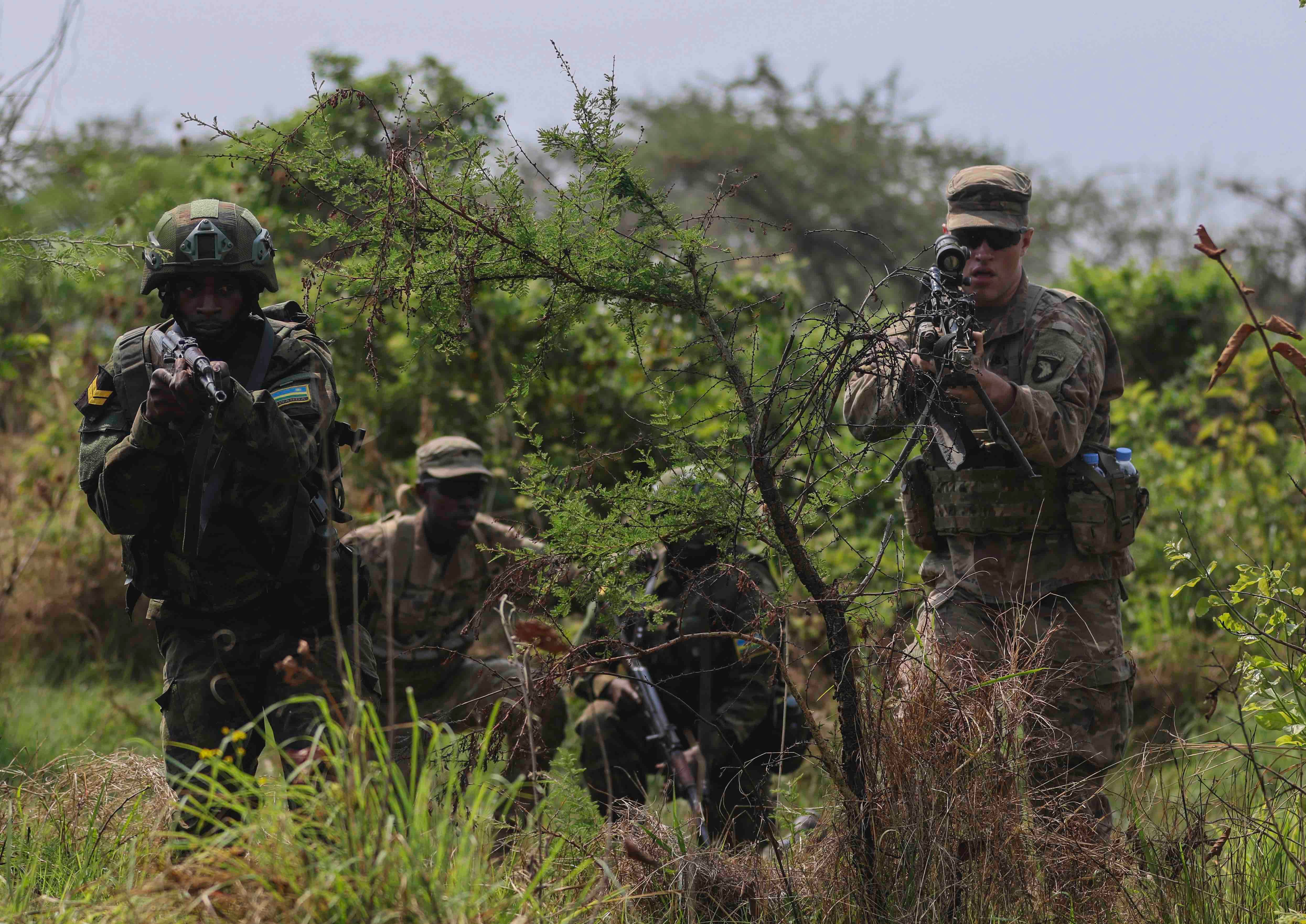WASHINGTON ― The upcoming 2021 defense policy bill will likely restrict the Pentagon from reducing its footprint in Africa, the chairman of the House Armed Services Committee said Thursday.
As Defense Secretary Mark Esper mulls plans to cut some of the 6,000 U.S. military personnel in Africa, Rep. Adam Smith, D-Wash., and Senate Armed Services Committee Chairman Jim Inhofe, R-Okla., took separate trips to the continent this month, each returning and expressing support for American troop presence there.
Whether or not the Pentagon proposes the cuts, Smith said it’s likely the nascent national defense authorization bill would provide a vehicle for growing congressional consensus around protecting that presence. If so, it could be a lifeline to African nations who rely on the U.S. to train their forces to combat surging terrorist activity.
“Right now, the reason [legislative protections are] likely is it’s drawn a lot of attention,” Smith said of Africa during a roundtable with reporters Thursday. “Also, I think there is a pretty firm opinion of our presence in Africa: The return on investment is more than worth it.”
Though Esper has stressed that no final decisions have been made, he has been considering moving forces out of U.S. Africa Command’s area of operations as part of a broad review of the military’s regional combatant commands. It was reported late last year the Pentagon was looking at removing several hundred forces from Chad, Niger and Mali.
The nations Smith visited ― Tunisia, Niger and Mali ― are grappling with growing terrorist groups, some with ties to the Islamic State group’s central command structure in Iraq and Syria, Smith said. The U.S. presence, he said, helps ensure local governments aren’t overrun by these groups and helps counter Russian and Chinese influence.
“I think the consensus opinion I’ve seen, at least among the people on our committees in the Senate and the House, is that Africa at best has enough [U.S. troops] and at worst needs more,” Smith said. “There’s no opinion out there I’ve seen that we ought to be reducing in Africa.”
If the U.S. were to reduce its troop presence in Africa, European allies would be less likely to send their own forces, said Smith, who also visited U.S. European Command. The U.S., he said, brings a unique counterinsurgency skill set that other countries lack.
“I think there would be a real concern if we were to completely pull out ... that part of the fight would be completely hampered,” Smith said. “It needs to be a team effort; so yes, if we were to reduce our commitment there, I think you would see a reluctance among out partners.”
On Africa, Esper is “clearly listening” to pushback from lawmakers and is “making adjustments,” Smith said.
RELATED

In his own roundtable with reporters earlier in the week, Inhofe said he was convinced, after speaking with Esper, that the secretary would conclude an increased troop presence is merited in Africa. Inhofe led a congressional delegation to Uganda, Ghana and Mauritania.
“West Africa is where the terrorists are starting to zero in, so we have to be sure that we are not reducing troop strength,” Inhofe said, adding that Africa Command’s contingent is nothing next to that of European Command and Indo-Pacific Command. “If you reduced all of it, it wouldn’t mean anything [in terms of budget]; it’s such a small number.”
As Esper conducts his review of the combatant commands with an eye toward a big-picture defense strategy and a flat defense budget, Smith anticipated members would propose measures beyond Africa to protect their priorities ― including the U.S. presence in South Korea and Afghanistan.
While Smith was supportive of the Trump administration’s peace talks with the Taliban, which have reportedly yielded an agreement, he was concerned the American troop presence “might go to zero too fast.” Under the plan, the American military presence would initially be reduced to 8,600 troops from the current 12,000.
Joe Gould was the senior Pentagon reporter for Defense News, covering the intersection of national security policy, politics and the defense industry. He had previously served as Congress reporter.








